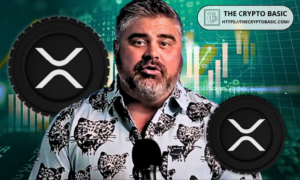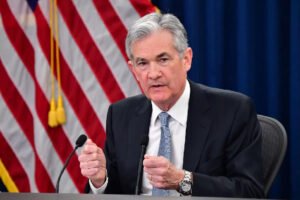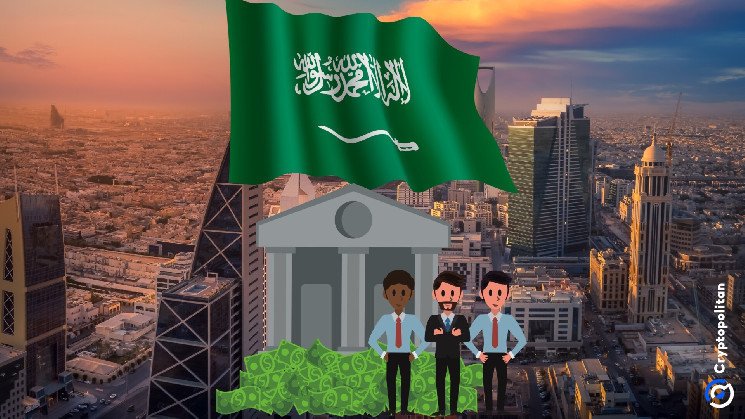Wall Street executives are headed to Saudi Arabia’s annual Future Investment Initiative (FII) in Riyadh, lured by promises of investment and Saudi Arabia’s $1 trillion Public Investment Fund (PIF).
Big names like David Solomon from Goldman Sachs, Larry Fink of BlackRock, and Citigroup’s Jane Fraser are expected to be at the event, which fills Riyadh’s luxurious hotels and showcases Saudi’s Vision 2030.
This initiative plans to transform the kingdom’s economy, reducing its reliance on oil and bolstering other sectors. The FII, launched in 2017, puts Saudi’s influence on display, despite rising regional tensions.
But there’s a different atmosphere this year. Financial tightening in Saudi and escalating conflicts in the Middle East (with threats to oil infrastructure) are giving investors pause.
As the kingdom focuses more on domestic investment, executives accustomed to Saudi checks are now expected to show commitment to its future.
“Saudi has clearly told them, we know you want our money, but how are you participating in our future?” economist Marius Vygantas said. Many aren’t prepared to answer.
How the Gaza, Lebanon wars affect the summit
Last year’s conference followed the October 7 Hamas attack on Israel, which led to Israel’s deadly retaliation against Gaza and complicated the Saudi-U.S.-Israel ties.
Many Western executives had avoided the FII after the 2018 killing of journalist Jamal Khashoggi, attributed by U.S. intelligence to Crown Prince Mohammed bin Salman (MbS).
Since then, MbS has sought to mend its international reputation, with Saudi calling for ceasefires in Gaza and Lebanon amid rising violence, fearing the fallout on its own stability.
Some executives at last year’s FII openly backed Israel, while JPMorgan Chase’s Jamie Dimon advised Saudi not to abandon a U.S.-led peace initiative with Israel. Saudi wants regional stability, which it believes will help attract foreign capital and expertise.
MbS even joined the EU’s recent summit with Gulf states, signaling his interest in broadening Saudi’s alliances as he steers Vision 2030 forward. This year, FII will feature a “New Africa Summit,” with industry leaders from mining and banking.
Gulf states are eyeing critical minerals in Africa as they try to diversify from oil. Saudi’s PIF is heavily involved, with projects ranging from the NEOM city project to luxury tourism sites like Red Sea Global.
But with the kingdom reviewing its finances, some projects may face delays or cutbacks, while the government prioritizes those critical to Vision 2030. The PIF is looking to foreign firms for commitments rather than simply signing checks.
Foreign investment drives Saudi’s Vision 2030
Saudi has set an ambitious target of $100 billion in foreign direct investment (FDI) by 2030—nearly 6% of its GDP. FDI is growing, but mid-way to the Vision 2030 mark, current levels suggest Saudi might struggle to reach its goal.
The PIF, central to Vision 2030, has partnered globally for projects, from the futuristic city NEOM to the entertainment city Qiddiya, but with oil prices down, revenue has dipped. In response, the government has started reviewing project spending, scaling back on some initiatives to stretch its resources further.
Pressure is mounting on international firms, accustomed to Saudi backing for their global deals, to commit funds to domestic projects. BlackRock, for example, agreed to establish a multi-asset investment platform in Riyadh, secured with $5 billion from the PIF.
Last year’s FII saw deals worth $17.9 billion, while organizers project $28 billion in new agreements for this year’s event. Among the potential deals is a major AI-focused fund, which could grow to $40 billion in collaboration with Andreessen Horowitz.
Another likely announcement is a $10 billion investment in hydrogen production, part of Saudi’s transition to low-carbon energy.
The country is also expanding its international financial connections. Two exchange-traded funds will debut on Riyadh’s stock exchange, allowing local investors to buy into Hong Kong stocks as the kingdom looks to strengthen its ties with China.
High-profile guests from Asia, including Hong Kong’s Financial Secretary Paul Chan, are scheduled to speak, further reflecting Saudi’s growing focus on Asia amid tensions with the West.
Meanwhile, Copley Fund Research reports that emerging market funds with Saudi exposure hit 56% but recently stalled as conflicts between Israel and Iran intensified. Some funds even reduced Saudi holdings between March and September, ranking the kingdom as a major underweight market after Taiwan and India.
Limits of Saudi’s financial power test MbS’s ambitions
Saudi, despite its oil wealth, faces economic constraints that are forcing MbS to rethink spending. The government predicts budget deficits until at least 2027 and has delayed certain Vision 2030 projects.
Still, about 7,000 people have registered for this year’s event—a higher number than last year, which was held soon after the latest regional conflict began. Richard Attias, CEO of the FII Institute, remains optimistic. “Investors are coming despite what’s happening,” he said. “The show must go on.”
Read the full article here










